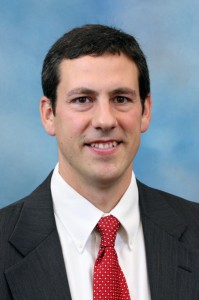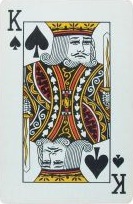
[Editor’s Note: This blog is the fourth in a series of interviews with faculty and staff at the Law School.]
Professor Carpenter teaches Legal Analysis, Writing, and Research courses at Marquette Law School. Outside of the law school, Professor Carpenter presents at writing conferences across the country, teaches Continuing Legal Education courses for the Illinois Attorney General’s offices in Chicago and Springfield, Illinois, and co-teaches a course, Writing Persuasive Briefs, for the National Institute of Trial Advocacy (NITA). Professor Carpenter is also active on various committees of the Legal Writing Institute. Before teaching, Professor Carpenter was a civil litigator.
Prior to practicing law, Professor Carpenter was a member of the law review and graduated with honors from Mercer University School of Law. At Mercer, he received the Woodruff Scholarship, the law school’s top scholarship award. Professor Carpenter graduated with honors from DePauw University in Greencastle, Indiana. While at DePauw, Carpenter was named an All-American in track.
Question: How did you first become interested in teaching legal writing?
I became interested in legal writing when I started practicing law and learned how much of a daily, critical role writing plays in a lawyer’s job. Fortunately, I had some colleagues in my firm who were great attorneys, great writers, and great mentors. I often saw the difference a strong brief made compared to a poorly written brief, and I began to view writing briefs as a fun challenge. After gaining confidence and experience, I began to really enjoy all aspects of writing briefs. When I decided to pursue teaching at a law school, I wanted to teach legal writing courses because researching and writing briefs were what I enjoyed most about practicing law. I wanted to help students develop in those areas because it’s such an integral part of practicing law.

 Some of the best and the worst of the legal profession can be seen through
Some of the best and the worst of the legal profession can be seen through 